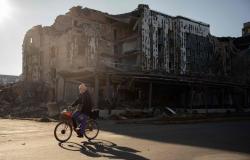The result of the referendum in Gabon, where the “Yes” side won an overwhelming majority, highlights deep issues that led to the collapse of the “No” camp. Among the objective explanations, we can mention the dispersed nature of the “No” supporters, whose message was diluted in the face of effective “Yes” coordination. Indeed, the “Yes” camp benefited from considerable institutional support and was able to mobilize financial resources, often from state structures.
In addition, the “No” supporters encountered major difficulties in their campaign, failing to reach all the electoral constituencies. The lack of wide dissemination of the new constitution also limited many voters’ understanding of the issues. On the other hand, the “Yes” camp relied on a strong media campaign, promising a “democratic refoundation” and the rejection of the Bongo-PDG regime.
It is important to emphasize that the “No” camp lacked charismatic political leaders and mass support, which hampered its ability to mobilize. Emblematic figures, like Professor Ondo Ossa, have struggled to bring together a united front, yet condemning a return to authoritarianism. Internal fragmentation and contradictory strategies within the No camp further weakened its position, with fragile alliances sometimes leading to perceived betrayals by activists.
On a more subjective level, the image of the “No” defenders also played a harmful role. Many of them, with controversial pasts, have aroused distrust and skepticism among voters. Their agitation has often been interpreted as a simple political calculation, disconnected from the real concerns of the population. In a context marked by recent political instability, part of the electorate ultimately chose security and continuity, despite criticism of the proposed reforms.
Thus, the lesson of the referendum in Gabon is multiple. Beyond the results, it is crucial to reflect on the need to unite the “No” forces around a clear message and solid leadership. Understanding the reasons for this failure could be decisive for future political battles, in order not to repeat the mistakes which led to this bitter defeat.
Swiss





